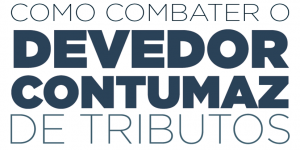By Edson Vismona
Last Wednesday (19), a task force, made up of agents from the Federal Police, the Federal Prosecutor's Office and the Federal Revenue Service, launched a major operation, called “Ex Fumo”, against a gang that has been operating in the cigarette sector for decades. According to information released in the media, the target of the operation is national cigarette manufacturers whose modus operandi the repeated evasion and default of federal taxes.
As a result, on Thursday (20), the Secretariat of the Federal Revenue of Brazil, through an act of its General Inspection Coordinator, declared the special registration of a cigarette manufacturer of the company Bellavana Indústria, Comércio, Importação, Exportação to be canceled. de Tabacos Ltda. And, the following day (21), the National Health Surveillance Agency - Anvisa, decided to suspend cautiously, as a measure of sanitary interest, all the registrations of the cigarette brands manufactured by that company. More: Bellavana's vast majority partner - Mr. Rafael Gois - was arrested by the Federal Police accused of tax crimes and, according to the media, he was largely responsible for improving the scheme generated in the sector that cost billions of reais to public coffers.
In this sense, although it is almost impossible to measure the size of the losses suffered by these cigarette companies, like Bellavana, given the existence of clandestine parallel factories and production lines, it is good to remember that some of them, based on information from the Ministry of Finance, together, in an updated calculation only until October 2015 (when the list of the Union's 500 largest debtors was released), a total of R $ 16,7 billion. American Virginia Indústria e Comércio de Tabacos alone owes more than R $ 4 billion to the Federal Treasury, appearing on this list as the 9th largest debtor in the country.
Therefore, operating in an absolutely unfair manner, the public coffers, the national industry and the companies that act in accordance with the rules are left to account for their losses, as the amounts owed by these frequent debtors will never be paid and the damage in the fair market will never will be undone.
The first step was taken by the “Ex Fumo” operation. But there is much more to be restrained, since they are companies that have been succeeding in the Brazilian cigarette market for many years, through subterfuges, judicial maneuvers and scams against national laws (tax, health, competition, industrial property, etc.) - for if you have an idea of the size of the scheme, more than 13 companies were closed by the same practices repeated in recent years by the tax authorities, giving way to identical ones, including those that sell the same brands, thus guaranteeing the perpetuation of the unfair commercial operation.
It is up to the State agencies to continue investigating and fighting other cigarette manufacturing companies still in operation, which do so much harm to society. In addition, the improvement of normative instruments would certainly contribute - as an example, today, on the agenda of the Federal Revenue, is the revision of Normative Instruction No. 770/2007.
The Legislative Power also has a fundamental role, in that the proposal of more severe laws would reduce the gaps widely used by these persistent debtors.
Last but not least, it is up to the Judiciary to be attentive to the cunning attempts of companies like these, in order not to be fooled by the seductive rhetoric of the small business pursued by the truculent Treasury, the fallacious argument that jobs closed and that the preservation of the company and business activity should be prioritized.
In this regard, it should be noted that the Supreme Court will have an excellent opportunity, on August 17, to act. On that date, the STF should resume the judgment of the Declaratory Action of Unconstitutionality - ADI 3952, proposed by the Christian Labor Party - PTC, through which tax evaders and defaulters can benefit if the unconstitutionality of part of Decree-Law 1593 / is recognized. 77, more specifically the prerogative there granted to the Federal Revenue of Brazil to cancel the special registration of cigarette manufacturers that repeatedly fail to comply with their tax obligations.
Brazil is changing. The Brazil that we all want is possible, it is enough to remain vigilant and active against those who attempt against the nation. We cannot and will not succumb. The Institutions of our Republic are serious and will continue to give severe responses. They will never escape the fight.
Edson Vismona is president of ETCO.
Source: JOTA (26/07)











